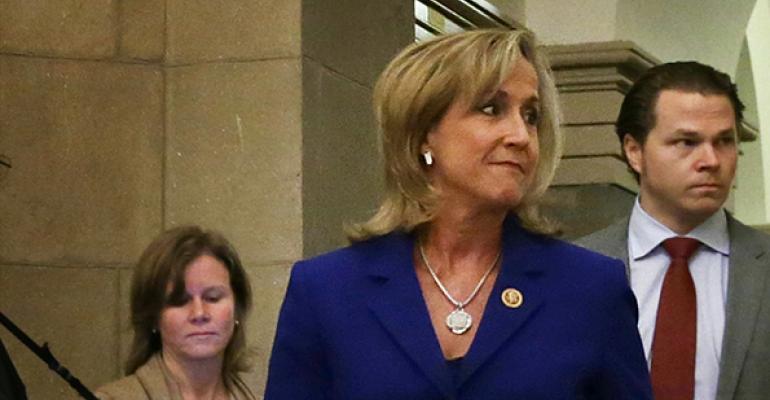The House Financial Services Committee on Wednesday passed legislation aimed at delaying the Department of Labor’s fiduciary rulemaking.
Introduced by Representative Ann Wagner (R-Mo.) in February, the bill, H.R. 1090, would require the DOL to wait 60 days after the Securities and Exchange Commission publishes a rule regarding brokers’ fiduciary duty before releasing its own. Additionally, the proposed legislation calls for the SEC to conduct an analysis to determine if investors would be “systematically harmed or disadvantaged” by the rulemaking.
The bill passed committee on Wednesday with a vote of 34-25 and will now be scheduled for a vote on the House floor. Wagner expects the legislation to pass, calling out “panderers” who previously supported the bill but now are siding with President Barack Obama and U.S. Sen. Elizabeth Warren in support of the Labor Department’s proposed fiduciary rule.
In response to the bill’s passage, the Financial Planning Coalition—made up of the CFP Board, the Financial Planning Association and the National Association of Personal Financial Advisors—urged Congress not to intervene in the Labor Department’s rulemaking process. “The need for a strengthened fiduciary rule under the Employee Retirement Income Security Act (ERISA) is long overdue,” the coalition stated.
The Consumer Federation of America called the vote disappointing. “The pretense that this is being done to protect retail investors is particularly galling,” Barbara Roper, director of investor protection for the CFA, said in a statement.
Meanwhile, the Securities Industry and Financial Markets Association supported Wednesday’s vote, adding the Labor Department’s rulemaking efforts could result in “redundant compliance regimes” and “unnecessary investor confusion.”
“In our view, Rep. Wagner's legislation is drafted in such a way that appropriately underscores the lead role of the SEC as the nation’s primary securities regulator with a long history of investor protection, market regulation and enforcement. This is what Congress intended when it adopted Section 913 of the Dodd-Frank Act,” Andy Blocker, SIFMA executive vice president of public policy and advocacy, said in a statement.
But while SEC Chair Mary Jo White has said that the agency’s staff has been directed to develop a proposal around a uniform fiduciary standard, no timeline has been given for the project.





